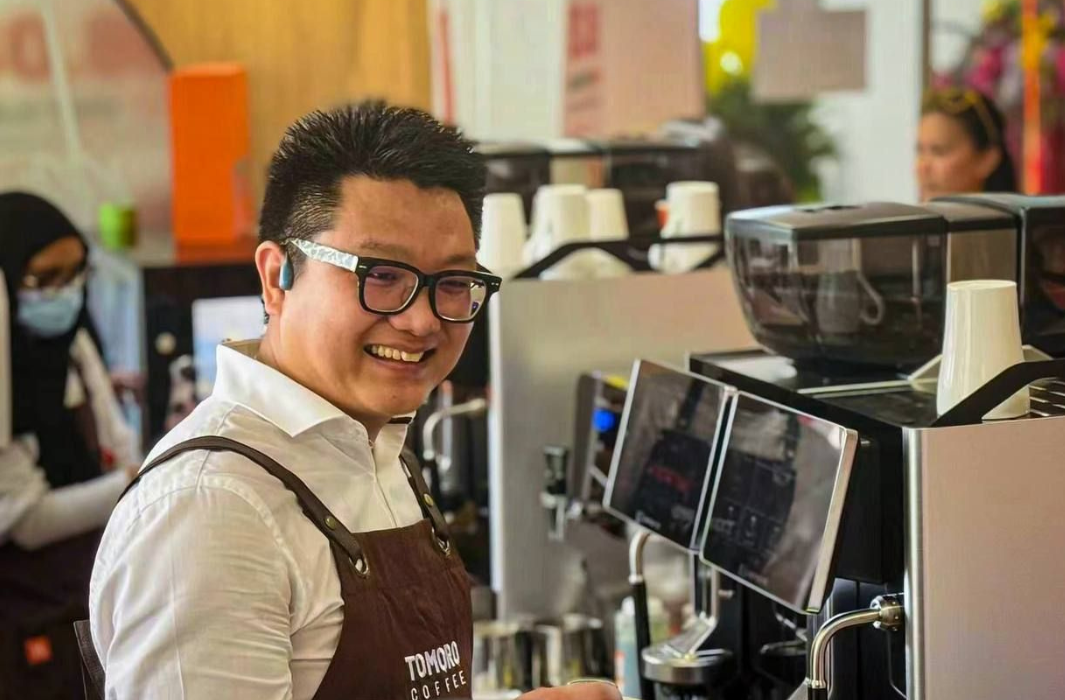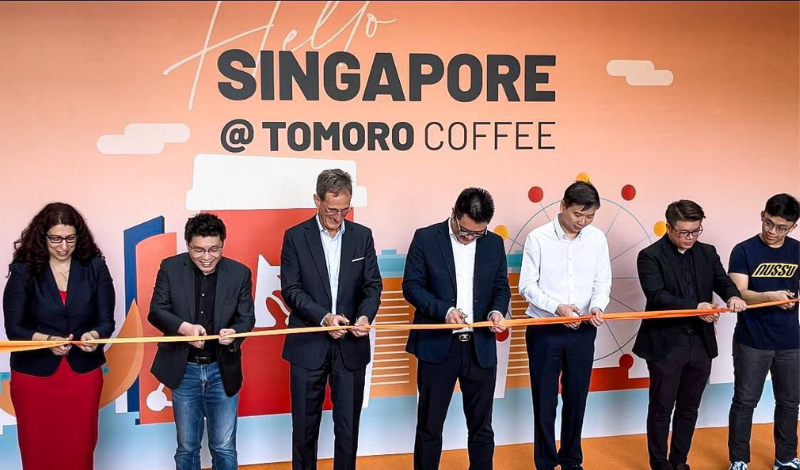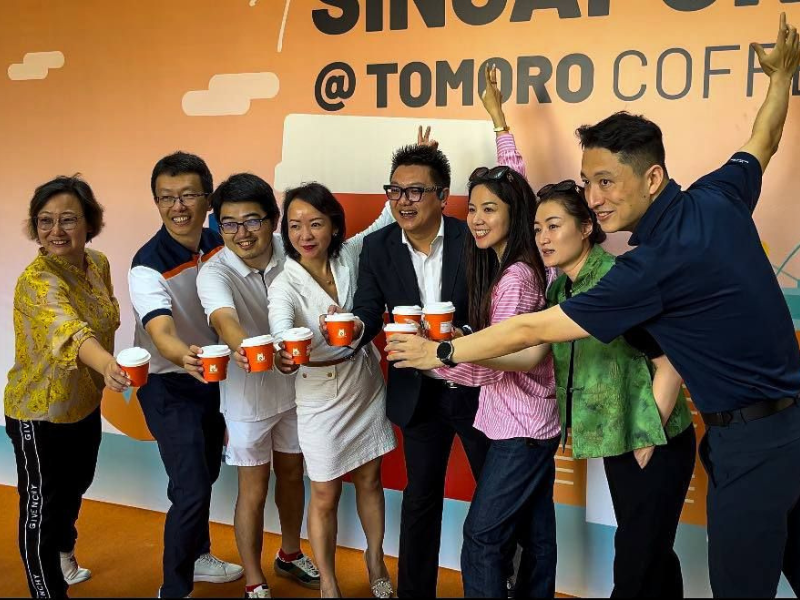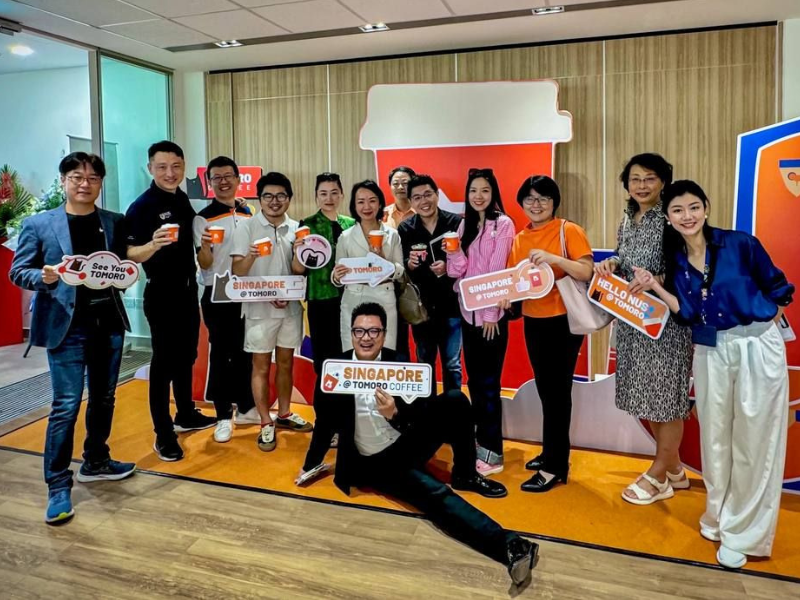Breaking into the saturated coffee chain markets in Indonesia and China may be risky for businesses. Still, coffee chain TOMORO founder Star Yuan, who is an Executive MBA – Chinese (EMBA – Chinese) alumnus, has no qualms about competing with established players like Starbucks.
“I just need to analyse and differentiate ourselves from the rest,” said Star, who recently expanded his coffee business beyond his headquarters in Indonesia, and entered the Singapore market with its first outlet at NUS Business School. He currently owns more than 400 coffee outlets in the archipelago.
Star started TOMORO COFFEE less than two years ago in Indonesia. It is his fourth business venture. His earlier endeavours included co-founding delivery company J&T Express and Imoo Watch Phone, a smartwatch for children.
While Star’s smartwatch venture started well, sales dropped due to the pandemic. The experience led to Star returning to school, who saw it as an opportunity to recharge himself.
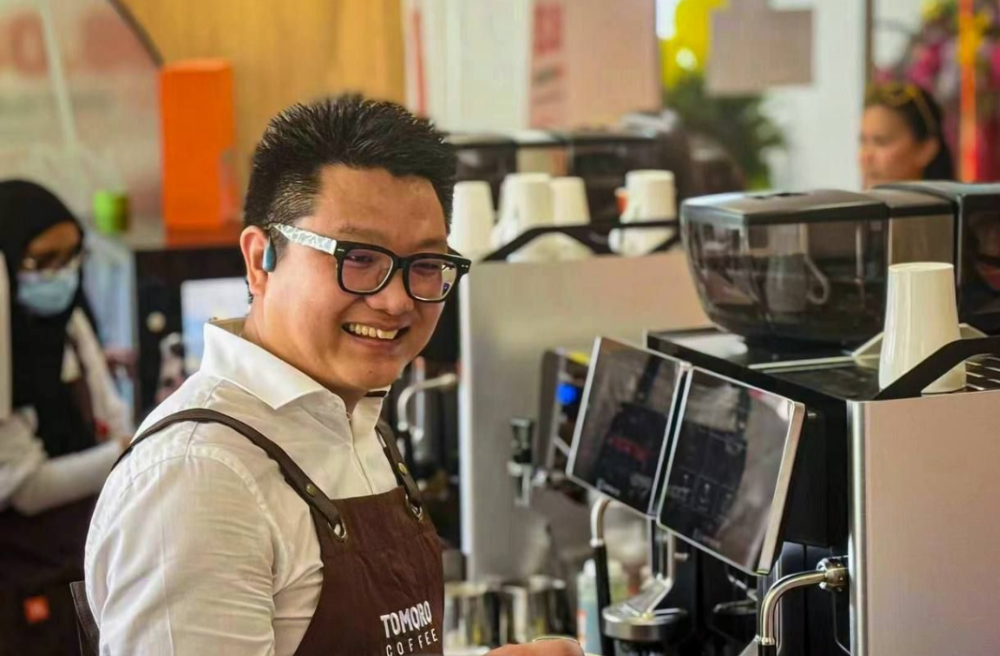
Tomoro co-founder and Executive MBA – Chinese (EMBA – Chinese) alumnus Star Yuan
Star joined the EMBA – Chinese programme in 2021, and during this time, he started discussing with investors his next business adventure. “What product has longevity and makes people happy?” he thought. Star was leaning towards the drinks sector such as bubble tea, because of the easy point of entry. But Star met coffee fan Fish Sun, and they decided to start a coffee business because of the lifetime value of coffee and the possibility of gaining more brand loyalty.
Next, Star quickly formed his management team and decided on the brand name “TOMORO COFFEE” with the team, referencing “tomorrow” and their vision for the coffee chain. Star’s investors were targeting to set up in Southeast Asia, and the founders quickly decided on Indonesia as TOMORO’s first market.
“There’s a huge middle class willing to spend and coffee is popular in Indonesia,” said Star. The country was a market that Star was familiar with. Before he became an entrepreneur, Star was part of Chinese smartphone maker Oppo’s Indonesia leadership team.
Finding the right formula
The coffee chain business may be a different field for Star, but he believes there is little difference from a management perspective. Star also wanted a fresh perspective, and he put together a team from diverse backgrounds, experiences and nationalities. “It is all about finding the right people to work with,” he said. “The people behind the product determine our success and our great teamwork has led TOMORO to Indonesia, China and now Singapore,” said Star.
The business leverages technology, where possible. Besides using automated coffee machines for efficiency, TOMORO introduced a mobile ordering app which allows them to learn about customers’ drinking and spending patterns and use targeted marketing based on the audience’s age and drinks’ preference.
TOMORO has created drinks for the Indonesian market with local ingredients such as palm sugar and pandan leaf. For the Singapore market, it has started adapting its menu for local customers, first lowering the sweetness compared to the beverages in Indonesia.
Giving back to NUS
Returning to NUS Business School was a trip down memory lane for Star, who recalled spending late nights completing assignments and projects while studying his EMBA-C course. “Quality coffee is a must for students, and setting up a coffee outlet at NUS is a natural choice”, he said.
Star also believes university students are an important customer segment for TOMORO. “College students have a characteristic that is very suitable for our brand – enthusiasm and vitality,” he added. Star has already set his eyes on opening two more outlets at the NUS campus.
Besides, he hopes to give back to NUS Business School in more ways than one. Star wants to provide students with an experiential learning experience through internships at the outlets. “I want students to come and learn about running a business, getting experience in let’s say, operations,” he said. “If possible, over time, the students can even run the outlets”, he added.



